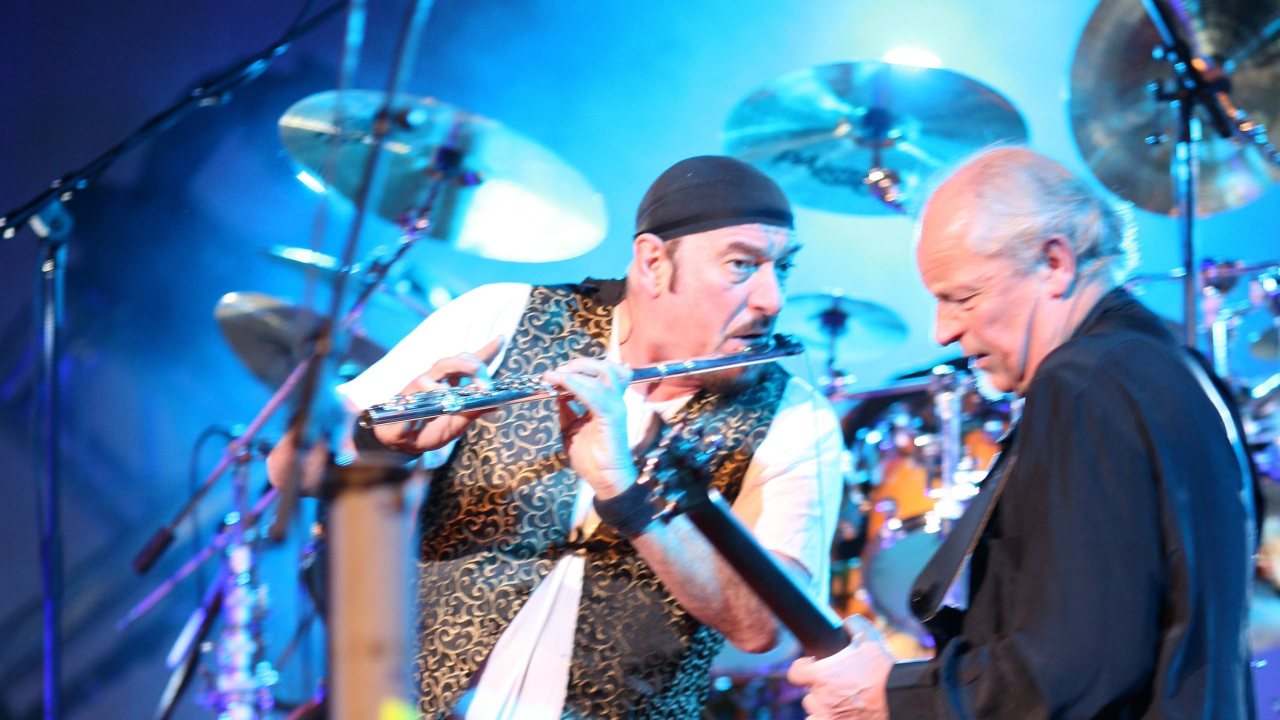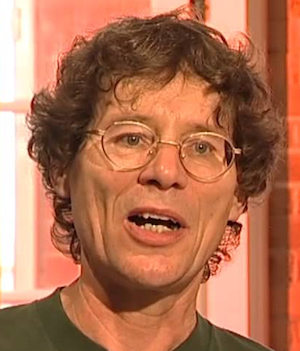Q&A: Ian Anderson (June 2008)
In 2008, Classic Rock talked to Ian Anderson, as he prepared for Jethro Tull's 40th anniversary tour

At the beginning of 1968 the band weren’t even called Jethro Tull. In fact they changed their name almost every week before eventually settling on the 18th-century inventor of the seed drill. By the end of 1968, Jethro Tull had a Top 10 album, the bluesy This Was and were poised to play their first American tour. Frontman Ian Anderson may now be the only original member left in Tull, but guitarist Martin Barre, who replaced Mick Abrahams in the last days of 1968, is only a few months behind. In the past 40 years they’ve seen 23 other members come and go, several of whom will be making guest appearances with the current Tull line-up during their 40th anniversary tour, which starts with a 29-date UK trek in April. Anderson says that the band’s first three albums will be featured prominently at the shows, “because part of the fun of anniversaries is to focus on the start-up of it all. So there’ll be some songs from the first couple of albums that we haven’t played for a long time, and one or two that we’ve never played.”
Who will be guesting on the tour?
I’ve talked to almost everyone, apart from a couple of guys who are sadly no longer with us, and most of them will be showing up at some point. One or two haven’t replied and there’s a couple more who don’t play anymore. Like John Evan, who now lives in Australia so it’s a little too far for him to pop over. And he hasn’t really played since Jethro Tull. I’m not even sure that he possesses a piano.
And Jeffrey Hammond hasn’t played since he laid down his bass guitar in 1975. He told me that he gets stressed these days just thinking about the builders coming round to fix the guttering, so the idea of getting up on stage is beyond him.
Despite the number of comings and goings in Jethro Tull there don’t appear to have been many acrimonious departures.
Certainly not as far as I’m concerned. I think there have been a few issues between other band members in the past, so it would be foolhardy to invite them along on the same night. But then you know how it is with people who profess some long-lasting and deep revulsion for someone: put them in the same room and they usually make up.
How much of a milestone is this 40th anniversary tour?
The latest news, features and interviews direct to your inbox, from the global home of alternative music.
The point is to focus on the fact that in the UK there is something special about being one of those bands that conjured something out of almost nothing at the Marquee Club and went on to greatness. That’s where we got our break. The club’s manager John Gee, who didn’t really care for loud rock music, liked the slightly jazzy thing that we had going.
The tour is also a tribute to John Peel who was very instrumental in giving Jethro Tull a start in life.
But later on he blanked you, didn’t he?
I think he thought that we blanked him. At some point he got the impression that we wouldn’t do his show. It wasn’t that we wouldn’t, but that we couldn’t because the date sheet was full. After that he was quite negative about Jethro Tull, which was a bit sad. I think he was quite sensitive about bands thinking that he had served his usefulness once they moved on to bigger things. I did write to him but I never got a reply. And I saw him once in [BBC radio centre] Broadcasting House walking out of the lobby as I was going in. I started to make towards him but he stared fixedly ahead and I thought: “This is not going to work”. I’m sorry I never got to make my peace with him, because he was a part of what made that whole underground thing happen.
In the UK Tull are probably best known for their first three albums – This Was, Stand Up and Benefit – whereas in America it’s the next three albums – Aqualung, Thick As A Brick and A Passion Play – that resonate strongest. Why is that?
Actually, in America it started with Benefit. That came out in 1970 just as we were beginning to headline theatres and play larger shows as a support. In many ways it was a darker album, with less flute and more guitar. But it seemed to appeal to the Americans more than its predecessor, Stand Up, which they thought was a bit too eclectic.
But Aqualung was where it really started to gel in Europe and America. It didn’t zoom to No.1 or anything but it was a solid, steady seller. And it’s carried on selling; the last time I checked it had sold 12 million copies. People who got into us in the late 70s and the 80s bought it. It was the first album to take off in Russia and Latin America, and later on, India too.
But Aqualung never got to No.1 in the US, unlike Thick As A Brick and A Passion Play.
That’s because everyone who bought Aqualung over a period of a year or so went out and bought Thick As A Brick and A Passion Play as soon as they came out. But they didn’t stay there for long.
They’re not particular favourites of mine, although I have a soft spot for Thick As A Brick. I listened to it a few years ago for the remaster and it still hangs together. But I don’t think it’s really a representation of what Jethro Tull were all about. There were a couple of years when we were doing that sort of stuff, recording music that you then played on stage and did more as a production tour. But having done that, it was time to move away because it felt too theatrical and there was little room for improvisation. It was way too choreographed.
You’ve always made a point of singing in an English accent rather than an American one which a lot of English bands do.
It always struck me as rather absurd that people like Mick Jagger, Rod Stewart and Elton John should sing in these contrived American accents. Particularly because they all have real accents of their own. That’s why I was always greatly moved by people like Alex Harvey and Ian Dury who were themselves on stage. Even David Bowie, although he took a chameleon approach to things, by and large sang in his own voice. I never found the need to sing with an American accent. I admit that there are some vowel sounds that have crept in, but they are easier to sing. Which is a weak excuse but they do actually fit better.
Speaking of which, do you regard yourself as English, or Scottish?
It’s easier to see myself as British because I was born in Dunfermline, I lived in Edinburgh, I moved down to Blackpool and then down to London. Plus my father was Scottish and my mother’s from Manchester. So being British makes sense.
This was published in Classic Rock issue 117.
Hugh Fielder has been writing about music for 50 years. Actually 61 if you include the essay he wrote about the Rolling Stones in exchange for taking time off school to see them at the Ipswich Gaumont in 1964. He was news editor of Sounds magazine from 1975 to 1992 and editor of Tower Records Top magazine from 1992 to 2001. Since then he has been freelance. He has interviewed the great, the good and the not so good and written books about some of them. His favourite possession is a piece of columnar basalt he brought back from Iceland.

